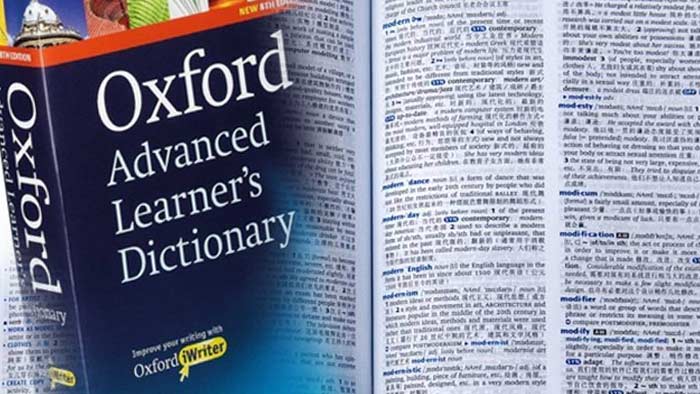The Oxford English Dictionary, OED, has officially included 22 Nigerian words and expressions, including “Japa” and “Agbero”, in its latest lexicon update.
Mr Kingsley Ugwuanyi, a Nigerian English consultant for the OED, shared the exciting news on his LinkedIn, noting that the newly added words reflected the vibrancy of Nigerian culture, language, and social trends.
He expressed excitement over his role in drafting the words and recording their pronunciations for the online dictionary.
He wrote: “I’m thrilled to announce that the Oxford English Dictionary (OED) Oxford Languages OUP has officially published its latest updates.
“It features an amazing collection of Nigerian English words that beautifully reflect Nigeria’s culture, creativity, and the unique ways we express ourselves as Nigerians.
READ ALSO: Police apprehend teacher for alleged abuse of 3-year-old pupil
“This time, I not only drafted most of the words but also had the incredible opportunity to provide their hashtag#pronunciations!
“So, when you explore the OED online and click on the pronunciations, you’ll hear my hashtag#voice bringing these words to life.”
According to Ugwuanyi, the inclusion of these words is a testament to the global reach of Nigerian English and its ability to capture contemporary realities alongside traditional heritage.
The newly added entries include popular terms like “japa,” “agbero,” “eba,” “419,” “abi”, “yahoo boy”, “adire”, “yarn dust”, “Kanuri”, “Kobo”, “Naija” and “suya”, among others.
The other words added include “area boy’ (lout), “cross-carpet”, “cross-carpeting”, Edo, “gele” (headgear), “jand”, “janded”, and “Yahoo.”
Some of the words, such as “japa” and “jand”, remarkably appear as both nouns and verbs in the undated dictionary.
These words, deeply rooted in the everyday lives of Nigerians, highlight the influence of Pidgin English, street slang, and cultural expressions that are increasingly gaining global recognition.
Among the entries, “Agbero” is described as “a person (usually a boy or young man) who works as a lout, typically at car parks and bus stops.
“He collects money from passengers and drivers, and ushering passengers onto vehicles.
“Japa” is defined as “the emigration of Nigerians to other countries (esp. those in Europe or North America) in search of further education, employment, or economic opportunity.”
The term “419,” widely known in Nigeria, is defined “as fraud (now usually perpetrated on the internet), “Frequently as a modifier, as in 419 email, 419 scam, etc. Cf. yahoo n.2”
“It involves requests for advance payment in return for a substantial share of a large amount of money, which ultimately is never given.”
The OED had also in its 2020 lexicon update added 29 Nigerian words, highlighting the growing influence of Nigerian English globally.
The entries include “gist”, “k-leg”, “next tomorrow”, “non-indigene”, “to rub minds”, “send-forth” and “Kannywood”, which refers to the film industry in northern Nigeria.
Other popular words added included “barbing salon”, “buka”, “danfo”, “mama put” , “Okada”, a popular word in Nigeria for motorbike and “Tokunbo”, a word for second-hand materials.
Source: NAN














